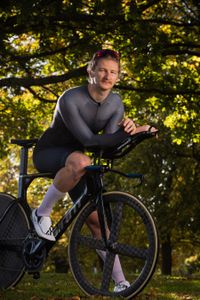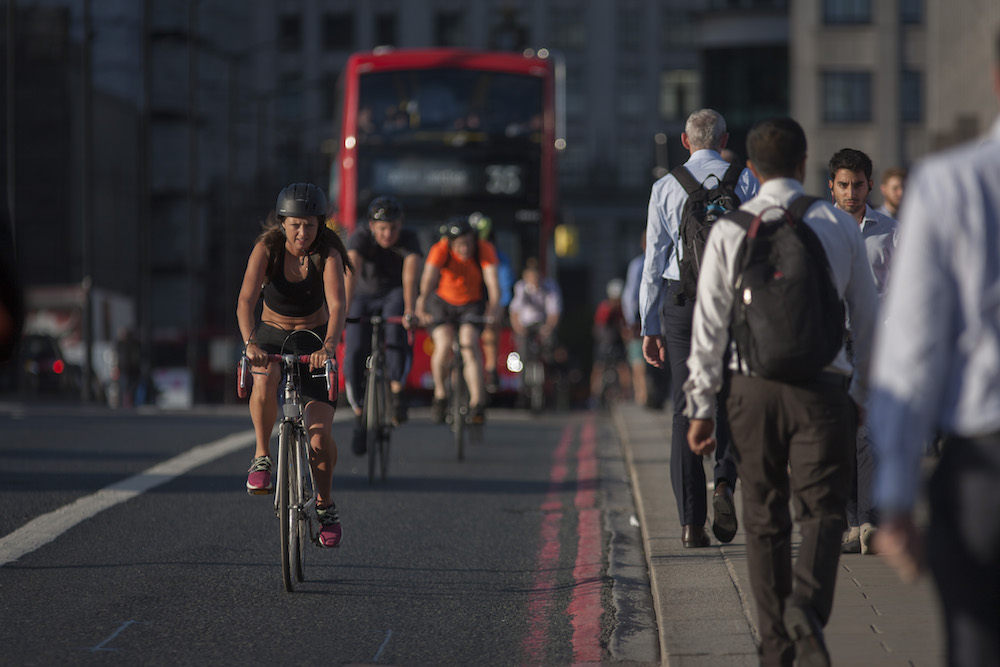New roads should prioritise cyclists and walkers, according to influential health group
The organisation has highlighted the benefits of cycling for the health system


Cyclists should be prioritised over cars, according to a health body (Photo by Richard Baker / In Pictures via Getty Images)
The latest race content, interviews, features, reviews and expert buying guides, direct to your inbox!
You are now subscribed
Your newsletter sign-up was successful
A major UK health body has said that new and upgraded roads should prioritise cycling and walking over cars.
The guidance was published by the influential National Institute for Health and Care Excellence (NICE), which says that cycling can help the health system.
Giving more priority to pedestrians, cyclists and public transport will help get more people active in their day-to-day life, according to NICE, which will in turn reduce obesity levels in the UK.
Deputy chief executive of health and social care at NICE, Professor Gillian Leng, said: “Getting people to be more physically active by increasing the amount they walk or cycle has the potential to benefit both the individual and the health system.
“As a society we are facing a looming Type two diabetes crisis, which is in part caused by people not exercising enough. We need more people to change their lifestyle and to take more exercise.
“People can feel less safe when they walk or cycle compared with when they drive.
“We’ve got to change this.”
The latest race content, interviews, features, reviews and expert buying guides, direct to your inbox!
>>> Ireland scraps plans for new law to tackle close passing
NICE, which issues guidance to the NHS, has recommended that authorities develop policies and initiatives that allow safe travel for pedestrians, cyclists and people who use public transport, giving them priority over motor vehicles.
The aim, NICE say, is to encourage safe, convenient, and active travel accessible to everyone, including those with limited mobility.
Professor Leng added: “Asking planners to prioritise pedestrians, cyclists, and those who use public transport when roads are built or upgraded can ensure they are safe, attractive and designed to encourage people to get out from behind their wheel.”
According to NHS Digital, 26 per cent of adults were classified as obsese in 2016 – a 15 per cent increase from 1993. That level has remained consistent since 2010.
>>> Dangers of close passing and advice on ‘Dutch reach’ will be added to Highway Code
Physical inactivity is also responsible for one in six deaths in the UK and costs the UK £7.4billion annually.
CEO of walking charity Living Streets, Joe Irvin, said: “For decades our towns and cities have been built to prioritise motor vehicles, resulting in unhealthy air, congested roads and a decline in people walking everyday journeys.
“The better planning that NICE is suggesting is absolutely necessary.
“Those who are the most vulnerable – children and older people – are currently suffering the most from bad air, unhealthy lifestyles and social isolation.”
NICE recommend that local authorities employ physical activity champions to oversee policy, workplaces have physical activity programmes and schools monitor their travel plans.
Alex Ballinger is editor of BikeBiz magazine, the leading publication for the UK cycle industry, and is the former digital news editor for CyclingWeekly.com. After gaining experience in local newsrooms, national newspapers and in digital journalism, Alex found his calling in cycling, first as a reporter, then as news editor responsible for Cycling Weekly's online news output, and now as the editor of BikeBiz. Since pro cycling first captured his heart during the 2010 Tour de France (specifically the Contador-Schleck battle) Alex covered three Tours de France, multiple editions of the Tour of Britain, and the World Championships, while both writing and video presenting for Cycling Weekly. He also specialises in fitness writing, often throwing himself into the deep end to help readers improve their own power numbers. Away from the desk, Alex can be found racing time trials, riding BMX and mountain bikes, or exploring off-road on his gravel bike. He’s also an avid gamer, and can usually be found buried in an eclectic selection of books.
